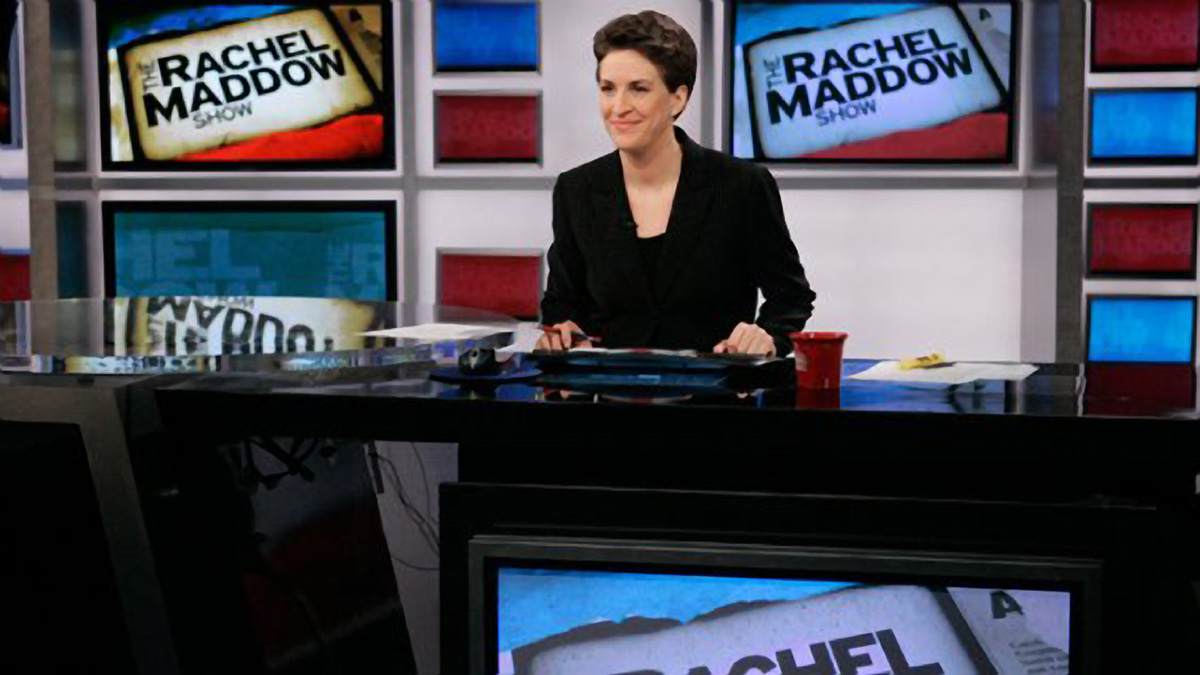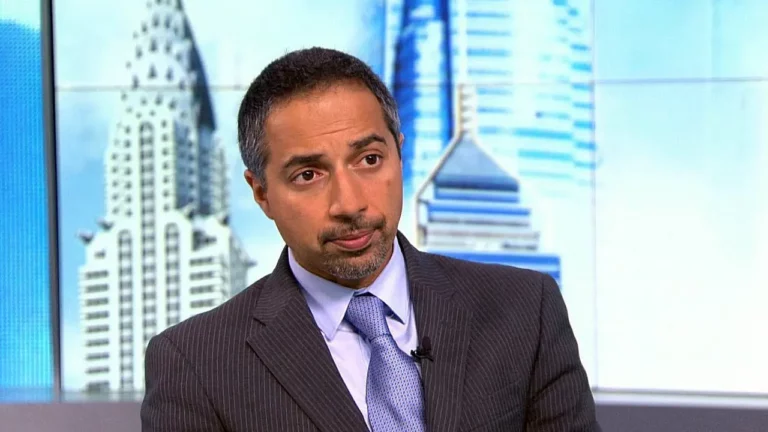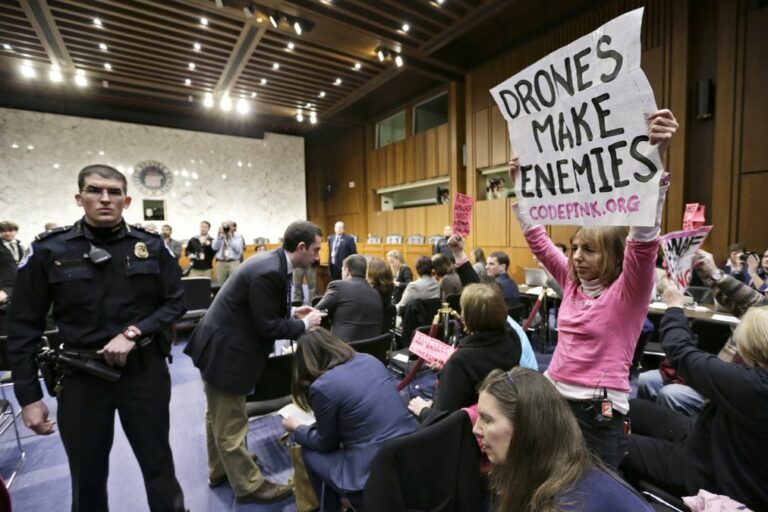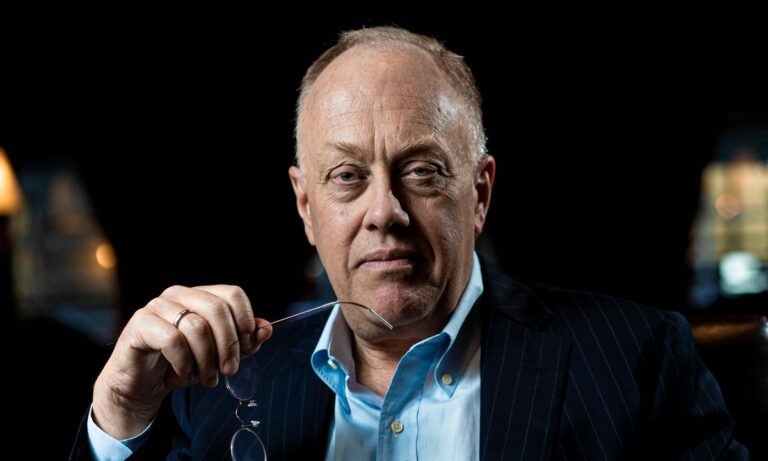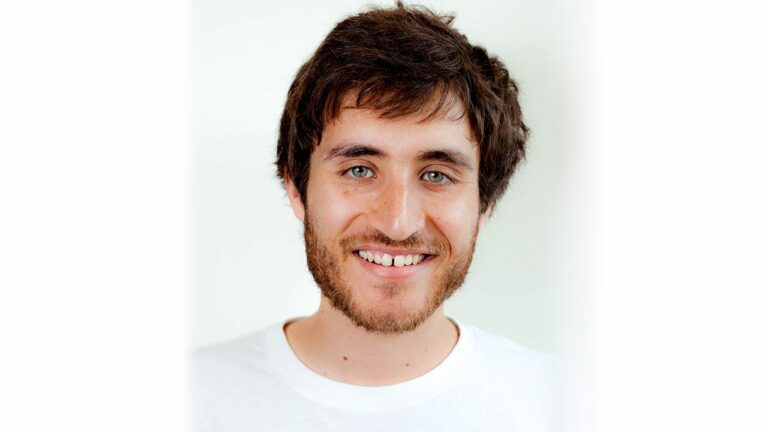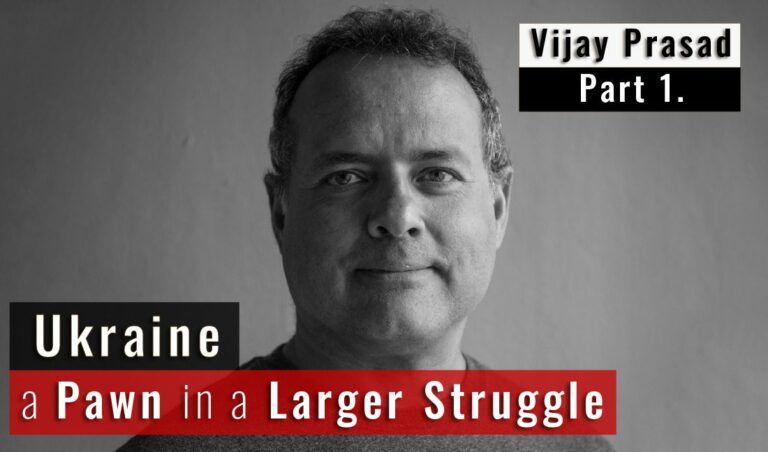The Occupation of the American Mind – RAI with Pink Floyd’s Roger Waters (pt 3/3)
This is an episode of Reality Asserts Itself, produced on March 23, 2016. Paul Jay speaks to Roger Waters and Sut Jhally about the new film “The Occupation of the American Mind: Israel’s Public Relations War in the United States.”
JAY: Welcome back to Reality Asserts Itself on The Real News Network. I’m Paul Jay, in Baltimore. We’re continuing our discussion with Roger Waters and Sut Jhally. We’re talking about the new film “The Occupation of the American Mind: Israel’s Public Relations War in the United States.” And you’re really going to…I’m not going to introduce the guys again, because you really should go back and watch this from the beginning, cause I think it’s a fascinating interview. We’re going to start off showing a clip. The importance of the next clip that we’re going to show you is that even some of the most liberal, major media commentators [inaud.] buy in to the same narrative. Israel’s the victim. And [they] seem very reluctant. And some of these people should know better, or really do know better and don’t want to say so, including Rachel Maddow. So here’s a clip from the film.
[CLIP 1]
JAY: So, that was Rachel Maddow, essentially doing the same thing as the rest of major media, including…whether it’s FOX or NBC, or so on. Roger you wanted to say something about the clip?
WATERS: Well, yeah. It’s a thing, as well, about the mainstream media, is that if you don’t tow the party line, if you don’t follow the line, and very particularly on Israel, you will be fired. You will lose your job. So, it’s no huge surprise that everybody takes the same line, and says the same thing. Because, people care about their salary at the end of the day. And people can be bought, and people can be sold. That is the nature of life in this country. And it’s really sad.
JAY: I mean, it’s interesting…
WATERS: You know, if you ask, even if you are in the press corps at the white house, if you ask difficult questions you don’t get asked to ask a question again. Or, you will not be invited, or you will not be on Air Force One, flying off somewhere to cover a trip.
JAY: Yeah, we saw what happened to Helen Thomas…
WATERS: You have to say the right things, or you won’t be invited.
JAY: Yeah. Helen Thomas, I don’t think it’s mentioned in your film, but it’s a very good example of what happens to a journalist, who is a veteran White House journalist, in the front row because of her seniority. And they hound her out of the press corps for asking exactly the kind of challenging questions that Roger is talking about.
JHALLY: Yeah. I would say, on the one hand, there’s the “control the narrative.” At the same time, there’s a culture of intimidation. So people are just scared to even ask basic questions around us, because they know what happens when you do. When you try and humanize the Palestinians, in any way, you’re immediately shut down. In the film, we have the example of Iman Weldon, who was an NBC reporter. Who was playing soccer with four kids on the beach in Gaza. And just before they were killed by a missile. And when he posted the reaction of the parents to the loss of their kids, NBCs reaction was to pull him out of Gaza. I mean, that becomes…when reporters see that…when reporters see what happens when you try and do the job of journalism….I mean, essentially American media have given up journalism, when it comes to this issue. They’ve just given up trying to be journalists.
JAY: I critiqued Sanders, for being part of that Senate vote, that Israel has the right to defend itself. But, on the other hand, what he did say when he spoke recently about his Middle East policy, and actually said there’s such a thing as Palestinian rights, which is ridiculous that that should be a thing. The media reported on it, and then completely moved on, as if he kind of never said it. But it did show that the sky did not fall when Sanders said that. It’s not like…I don’t think there’s any evidence that he lost electoral support, even in New York State. Maybe some in some….I don’t think orthodox were probably voting for him anyway.
JHALLY: I think that Bernie Sanders moment was an incredible moment, when he said that during the debate. In part of what he said, even though it was very minor, you know, he framed it by saying “Of course, Israel has a right to defend itself. Of course.” You know, and then he said a small part about Palestinian rights. But I think the most radical part, or the most interesting part of that, was the people in the audience cheering, which is an indication that something is happening. There is some crack among certain segments of the population, around this issue.
JAY: Well, let’s show another clip from the film, which is just about this, which is in fact how the narrative is changing. And let me declare a conflict of interest, at the beginning of this, because in this clip…I think it’s in the clip, but in the film, at any rate, there’s a mention of media outlets, which are not following the official narrative here. And the Real News is mentioned as one. But, at any rate, here’s the clip.
[CLIP 2]
JAY: So, Sut, the landscape is changing. As powerful as this media campaign has been, there are church organizations at the national level supporting Boycott Divestment Sanctions against Israel…major unions have adopted this, certainly on campuses…student bodies. It’s in spite of tremendous pressure. Being called, essentially, an anti-Semite. People are seeing past this. The mood seems to be changing.
JHALLY: Well, I think it’s changing on the margins, and important places in the margins. So, it’s not a totally blanket thing anymore. There are places young people, church groups, community groups…I think the new Black Lives Matter movement are seeing the connections between police violence in the cities here and military violence against Palestinians. So, I think those connections are starting to be made. They are being made on the margins. And, I think what we have to do now is to take those cracks and make them a flood.
JAY: You know, there’s an important one, and it’s in your film…I guess it’s in the clip…one of the activists in Ferguson says, you know, “from Ferguson to Palestine, we’re fighting for freedom.” Well, we see that in Baltimore. You know, Baltimore is a city that is 65% African American, and the link between the black activists in Baltimore feeling very…a real kinship with the struggle in Palestine. It’s quite strong. In fact, more with Palestine than, perhaps, anything else going on in the world.
WATERS: Alright, this is a small thing, but I was at a movie premiere a couple of weeks ago. It was miles ahead…I like the movie. It’s about Miles Davis, but anyway, when they finish talking to Don Cheadle and…who else was in it. I can’t remember now. But, a couple of reporters came over to me. One was from People magazine, and one was from New York Daily News. Neither of which publications I expect much sympathy from…really interesting. A couple of years ago, or three, or whatever, they might have asked me this question, “Why are you an anti-Semite?” That’s what they would have said to me then. “Why are you so anti-Semitic?” Now, they say to me, and they both asked me the same question, they said, “How do you feel, when people accuse you of being an anti-Semite?” Now, that is a huge shift. It may sound subtle, but it’s not. It opens up the question of whether I am anti-Semitic, or not. Which is a question that you couldn’t even approach two or three years ago. It was just assumed that I was, because, you know, the [inaud.], you know, organization in Los Angeles had said I was. So, therefore I must be. I think it’s really interesting the way, even in People magazine and the Daily News, the attitude is just changing a little bit. I’m so excited by it. It’s so exciting to be here now, and watch this thing turning around. Because the momentum is changing. The students and the churches and the people in Baltimore and Black Lives Matter, joining together with their brothers and sisters in Palestine. And so, it’s becoming…the movement is spreading. We care about Black Lives Matter movement as much as we care about BDS. It’s all fundamentally important, because it’s all about the fact that all human beings…and there is no us and them, we are only us. And all of our lives matter. And once we can din that to people’s hearts, we will be unstoppable as a movement. And I look forward to that time. And it’s coming soon. I believe that. Sorry. I digress.
JAY: No, not at all. Sut, talk a little bit more about how you’re going to get this film out.
JHALLY: Yeah. I think Roger’s absolutely correct. You know, I mean, and it’s not just accidental. It’s not just that it happened out of nowhere. It’s been the end result of a long period of activism by many, many people over the years. But, I think we are now starting to see some daylight in small places. And, I think what we now need to do is we now need resources, to get people to think clearly about these things even more, so that they can talk about these issues in a knowledgeable way. I think, on the one thing that’s warranted with our film…I don’t think many people would be shocked to think that we’re in the middle of a propaganda campaign by Israel. You know, you look at the media…I mean, people are really frustrated. I know people are throwing things at their televisions during the last Gaza war. What the film does, and I think this is very very powerful, what the film does is answer the question “Why?” And it gives people a way to peak behind the propaganda, and to see how it is being put in place. And once you know how something has been put in place, you can start to take it apart. That’s the value of doing this kind of work, which is why we hope the film will be shown, especially in community screenings, and community settings, where you can have discussion around it. We have a whole strategy to make sure that it’s shown on as many campuses as possible. If you’re a professor, or if you’re a graduate student, or if you’re an undergraduate, get your library to buy, so it becomes part of the permanent collection. Organize a screening on campus. If you’re a church group, or if you’re a community group, organize a screening, so that people can have a chance to come together to talk about this. Because, I think the time is right. As Roger said, I don’t think there’s ever been a time like this. And the question is, do we take advantage of it? And do we have the resources to move things forward?
JAY: Right.
JHALLY: So it is…it’s a very very hopeful period. And I hope the film will be part of that movement.
JAY: Roger did you want to have a final word?
WATERS: Yeah. Hear, hear!
JAY: Hear, hear.
WATERS: I agree with everything that Sut’s saying. And I think it is an exciting time. And we shall overcome. You know, we are all in this together, and the more connections that human beings make with one another, and recognize that one man’s predicament is all of our predicaments. You know, I made a speech…they showed my movie in Tunisia, in Carthage, a few months ago, “The Wall” movie. And Tunisia is a very very important country to us now, because out of the Arab Spring where there was popular uprising by people all over that part of the Arab World, the Tunisians were then faced with whether to fall back into either a tyrannical rule by the army, or some other tyrant, having gotten rid of the Ben Ali family. They, as a collective, decided that they would not descend into civil war and conflict, and then another autocratic thing…that they would talk to one another. So, the national court in Tunisia, that was made up of the labor unions, a board of industry, human rights groups, and the law community, a community of lawyers. They formed a quartet, and they got together and they thrashed out a constitution, and they stuck to it. So, we’re now three years later, and they have a constitutional democracy, where they talk to one another. You know, it’s a secular government, with an Islamist opposition, and they don’t just talk at one another. They talk to one another, and they listen to one another. And they figure out and they hammer out policy. And obviously, there are still problems in Tunisia, but what a shining beacon of light that is. Not just for the rest of the region of North Africa and the Middle East, but for the whole world. That this small country, eleven million souls, all together, is providing an example that we would all do well to follow. Where speech is free, and where everything isn’t just bought and sold. So, it’s a great example.
JAY: One more time. So where can people see the film?
JHALLY: People can see the film at www.occupationmovie.com. And they can stream it there or they can buy a DVD to screen, as well.
JAY: Ok. Thanks very much Sut. Thank you Roger.
WATERS: Thank you for having us on.
JAY: I hope we can do this again. And we’re going to end by showing a couple more clips from the film, but thank you for joining us on Reality Asserts Itself on the Real News Network.
JAY: Another way you can get to the film streaming, which is, I think, five bucks to watch the film, or you can buy a DVD, is on the Real News home page. You’ll see a copy of this movie poster. If you click on it, it will take you to the page where you can get to the film.
“George Roger Waters is an English musician, singer-songwriter and composer. In 1965, he co-founded the progressive rock band Pink Floyd as its bassist.”
